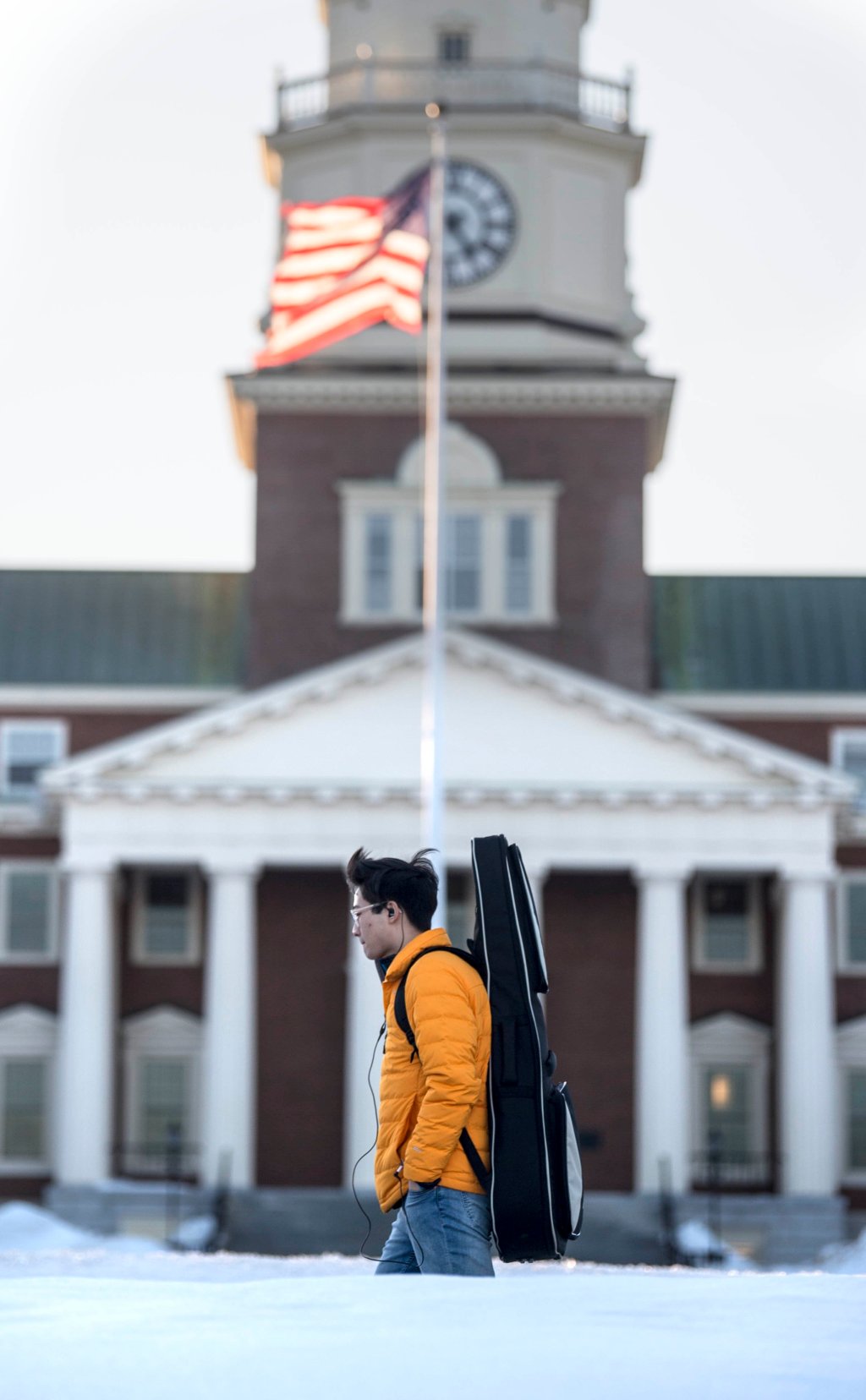Colleges across the U.S. are experiencing a stark drop in international student enrollment this fall, largely due to increased political pressure on the more than 1 million foreign students who typically study in the country each year.
But in Maine, which has few international students compared with the rest of the country, most colleges seem to be unaffected by that decline.
Since last spring, the Trump administration has targeted international students as part of its immigration and education policies, revoking visas for thousands during the last semester, leading to legal challenges, including from the American Civil Liberties Union on behalf of students in Maine and other New England states, and eventually a reversal of that policy.
Just this week, President Donald Trump announced his proposal to limit the stay of international students in the U.S. to four years. Currently, students can stay through the length of their studies.
Because of those pressures, anxieties and limitations on visa interview appointments, the nonprofit NAFSA: Association of International Educators predicted a 30%-40% decline in new international student enrollment this fall. That trend could continue in future years as well.
So far, early predictions seem accurate. The number of international students entering the U.S. on visas dropped almost 30% from July 2024 to July 2025, Forbes reported last week. Colleges in New York, Illinois and Arizona have all reported declines in international student enrollment so far.
Maine has never been one of the country’s highest receivers of international students, and ranked 47th in the country during the 2023-24 school year. Still, about 2,000 students from outside the U.S. attended Maine colleges that year, many from China and Canada, which made up about 19% and 15% of the state’s international students, respectively.
The University of Maine in Orono, the system’s flagship campus and the state’s biggest school, has the most international students in the state. System spokeswoman Samantha Warren said there has been only a slight decline in international students in the system, from 866 this time last year to 862 this year. International student enrollment in the system has generally been on the rise, she said, up 35% over this time five years ago.
Warren said the most significant chunk of the system’s international students come from Canada, and Canadian student enrollment is actually up over this time last year, from 291 students in 2024 to 301 today.
She noted that the system has expanded its online degree offerings, so, “some international students may plan to take their courses entirely online and will not necessarily come in person to our Maine universities.”

A student walks in front of Miller Library at Colby College in 2019. (Michael G. Seamans/Staff Photographer)
At Colby College in Waterville, however, international student enrollment has dropped for the incoming class of 2029 by about 15% over previous years, a college spokesperson said Thursday. Colby’s overall student body is about 11% international and the school had almost 300 students from outside the U.S. during the 2023-24 school year. Officials did not return a request for comment on the drop.
Two of the state’s other colleges with high international student enrollment, Bates College in Lewiston and Bowdoin College in Brunswick, reported little change.
At Bates, international student enrollment declined by less than half a percent since last year, a difference of six fewer international students. And at Bowdoin, a spokesperson said the college is “within the range of our typical enrollment” although he did not provide specific numbers. Last year, Bowdoin’s incoming class of 507 students was 11% international.
The Roux Institute in Portland, a graduate campus of Boston-based Northeastern University, has had the third-highest number of international students in the state (the most recent 215-student graduating class included students from 20 countries). Northeastern also has the third-largest international student populations of any university in the country, most of those attending its Boston campus. A spokesperson did not respond to a request for information about international student enrollment at Roux this fall.
Organizations like NAFSA: Association of International Educators warn that a drop in international students can lead to economic consequences for states and local economies. They predict $7 billion in lost revenue and 60,000 fewer jobs this academic year, including an almost $13 million loss in Maine.

We invite you to add your comments. We encourage a thoughtful exchange of ideas and information on this website. By joining the conversation, you are agreeing to our commenting policy and terms of use. More information is found on our FAQs. You can modify your screen name here.
Comments are managed by our staff during regular business hours Monday through Friday as well as limited hours on Saturday and Sunday. Comments held for moderation outside of those hours may take longer to approve.
Join the Conversation
Please sign into your CentralMaine.com account to participate in conversations below. If you do not have an account, you can register or subscribe. Questions? Please see our FAQs.